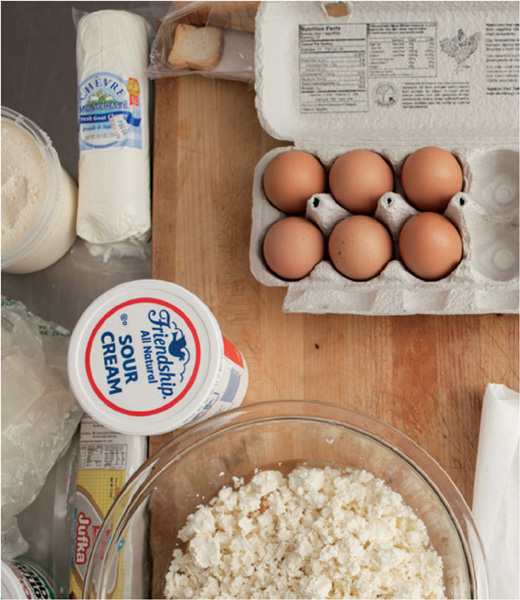

In every cook’s life, there comes a moment. It’s not a moment you can anticipate, but it’s certainly one you can prepare for. It’s the moment when you stop following recipes to the letter and start cooking based on what you know.
Maybe it’s because of all those cooking shows where angry chefs rail against kitchen rookies for oversalting the cod or underseasoning the étouffée, but we’ve become a nation of nervous Nellies in the kitchen. Most people deal with their kitchen nerves by slavishly following recipes to the point where if a recipe calls for a half teaspoon of paprika and they only have a quarter teaspoon, they’ll turn off the oven and order a pizza.
That’s no way to cook.
This book is an attempt to change all that. Consider this book an insecurity killer, a confidence booster of epic proportions. For a year, I cooked with the best chefs and home cooks in America. In the process of visiting eleven cities and fifty kitchens, I learned a thing or two about producing quality food at home. It has nothing to do with recipes and everything to do with trusting yourself in the kitchen.
Great cooks are confident people. In a restaurant setting, chefs are leaders: they command roomfuls of fellow chefs and, through their leadership, feed hordes of hungry masses night after night. Great home cooks also project great confidence, as they often face an even tougher crowd: picky spouses and cranky children.
And though I’m becoming more confident in the kitchen, my status as a self-taught, amateur home cook with no formal training makes me an ideal candidate to soak up all the knowledge and wisdom that these chefs and cooks have to offer. Because, like you, I’m just a normal home cook—not a noteworthy chef redefining the face of gastronomy—I notice things most cooks and chefs do and take for granted. And I’ve distilled it all for you in these pages.
I’ve cooked with chefs from a wide variety of cultural backgrounds (French, Jamaican, and Chinese, to name a few), with varying degrees of experience (from young chefs to chefs in their sixties), and who cook for unusual reasons (like Brandon Pettit, who gave up a career in music to make pizza).
Some of the chefs use old-fashioned cooking gear (food mills, copper bowls); others use more futuristic devices (immersion circulators, Cryovac sealers). Some chefs have ingredients delivered to their restaurants; others grow the produce that they use themselves. Some chefs work hard to make everything new (carrots cooked in hay stock, corn soup with a coconut dome made with liquid nitrogen); others work hard to properly execute and improve upon classic dishes (potato gnocchi, pasta fagioli, chicken liver mousse).
In all these cases, one thing is very clear: all of these cooks and chefs who are so notable for their food are also notable for their personalities. I was surprised to discover that it’s a strong sense of self more than anything else that allows you to make extraordinary food at home. To put it simply: if you make the food that you like to eat, you’ll make food that others like to eat. You just have to trust that the food that you like to eat is food worth eating.
To become a great cook, you have to tap into the part of you that knows, on a deep level, what you want something to taste like and then get it to taste that way. That’s what all of the chefs in this book do, and that’s what I try to do now too. Don’t look outward for the answers; look within.
Think of this book as a prompt, a catalyst for self-reliance in the kitchen. With countless stories, lessons, pictures, and more than 150 recipes, I want to help you trust yourself behind the stove. The next time you’re making a recipe that calls for a half teaspoon of paprika, and you only have a quarter teaspoon? You’ll shrug it off and use something else.
You won’t have to measure. And when you stir it in, you’ll take a taste just to make sure. And if it tastes good to you (and why shouldn’t it? You’re a good cook!), it will taste good to everyone.
That’s the secret, the ultimate wisdom I gleaned from cooking my way across America. It’s a funny thing to say at the start of a cookbook, but it’s true:
Don’t rely on the recipes. Learn to trust yourself.